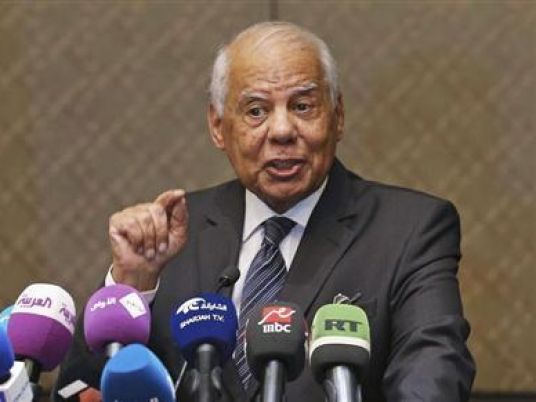
Hazim al-Beblawi, Executive Director of the International Monetary Fund (IMF) and Egypt’s former Prime Minister, expects the economic situation in Egypt to improve after three years.
In the annual meeting of the African caucuses for the World Bank (WB) and the IMF, Beblawi stressed the need for the Egyptian government to encourage the private sector. He recommended investing in all fields, creating job opportunities for youth, and finding unconventional solutions to generating non-tax revenues, rather than continuing to increase taxes and fees.
On the sidelines of the meeting, which concluded in Sharm el-Sheikh on Monday, Beblawi told Al-Masry Al-Youm that Egypt’s economic reforms were steadily moving forward.
He stressed the need to complete the program to the end – as the remaining difficult procedures were few – and described Egyptians as “heroes” for bearing the harsh effects of the program.
The IMF encourages Egypt to continue its plan to raise energy prices, he said.
The organization will review the reform program twice before disbursing of the rest of the US$12 billion loan to the Egyptian govenrment. The next review will be in November 2018, according to Beblawi.
Beblawi denied allegations that the IMF requires countries to impose unfair economic procedures, causing low-income classes to suffer. He pointed out that governments have the freedom of choice whether to apply the IMF’s conditions or not, in accordance to their needs.
Egypt’s external debt – which stands at US$88 billion – is not worrisome, Beblawi assured. He stressed the importance of loans to establish investment projects that could achieve sustainable development.
Beblawi also denied that increasing taxes are the problem. He instead pointed to the large sector of Egypt’s population who evade taxes, particularly self-employed workers like doctors, lawyers, engineers, artists, and accountants. He saw this as a phenomenon that the government needs to face strongly.
According to Beblawi, increased inflation is a result of the high deficit of the balance of payments, especially given that Egypt imports wheat and raw materials for manufacturing, as well as machinery in hard currency. He added that the decline in tourism revenues and foreign investment, as well as the flotation of the the pound, also caused inflation rates to rise.
In an attempt to revive its faltering economy since 2011, Egypt obtained an IMF loan in 2016 in exchange for implementing a rigorous reform program, beginning with floating the pound.
Implementation of the program began in November 2016. The international lender agreed to provide Egypt with a $12 billion loan, in exchange for wide-ranging structural economic reforms.
These reforms include a raft of measures such as devaluing the pound currency, loosening capital controls, ending energy subsidies, reforming public enterprises and overhauling monetary policy – all in a bid to restore economic stability and long-term growth.
The first step the IMF commended was the flotation of the pound, a measure taken quickly in November 2016. The following year, Egypt slashed parts of its energy subsidies, resulting in a 60 percent surge in fuel prices.
The IMF has since recommended that the government continue removing subsidies on fuel.
Edited translation from Al-Masry Al-Youm.




